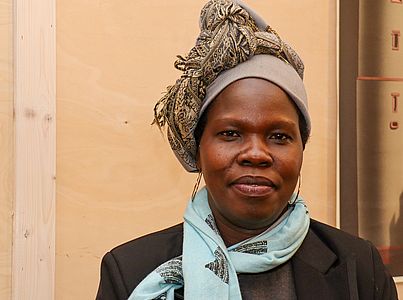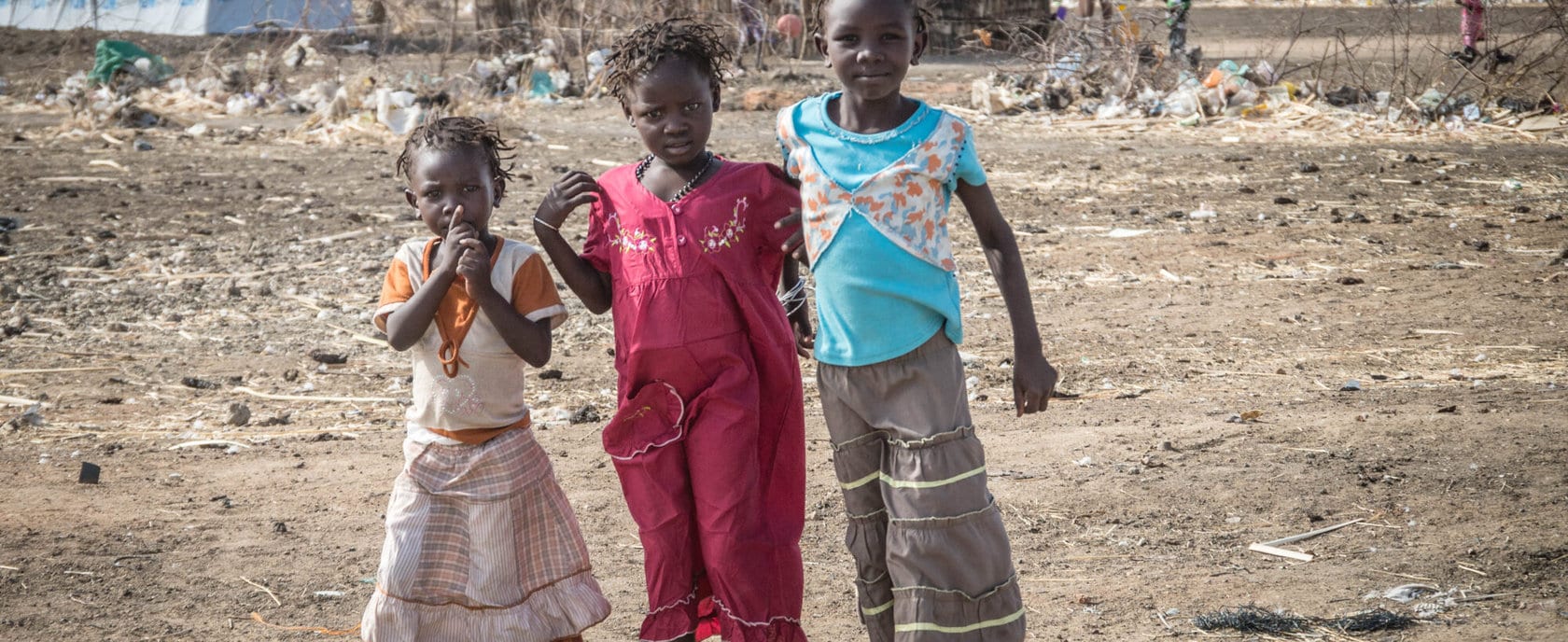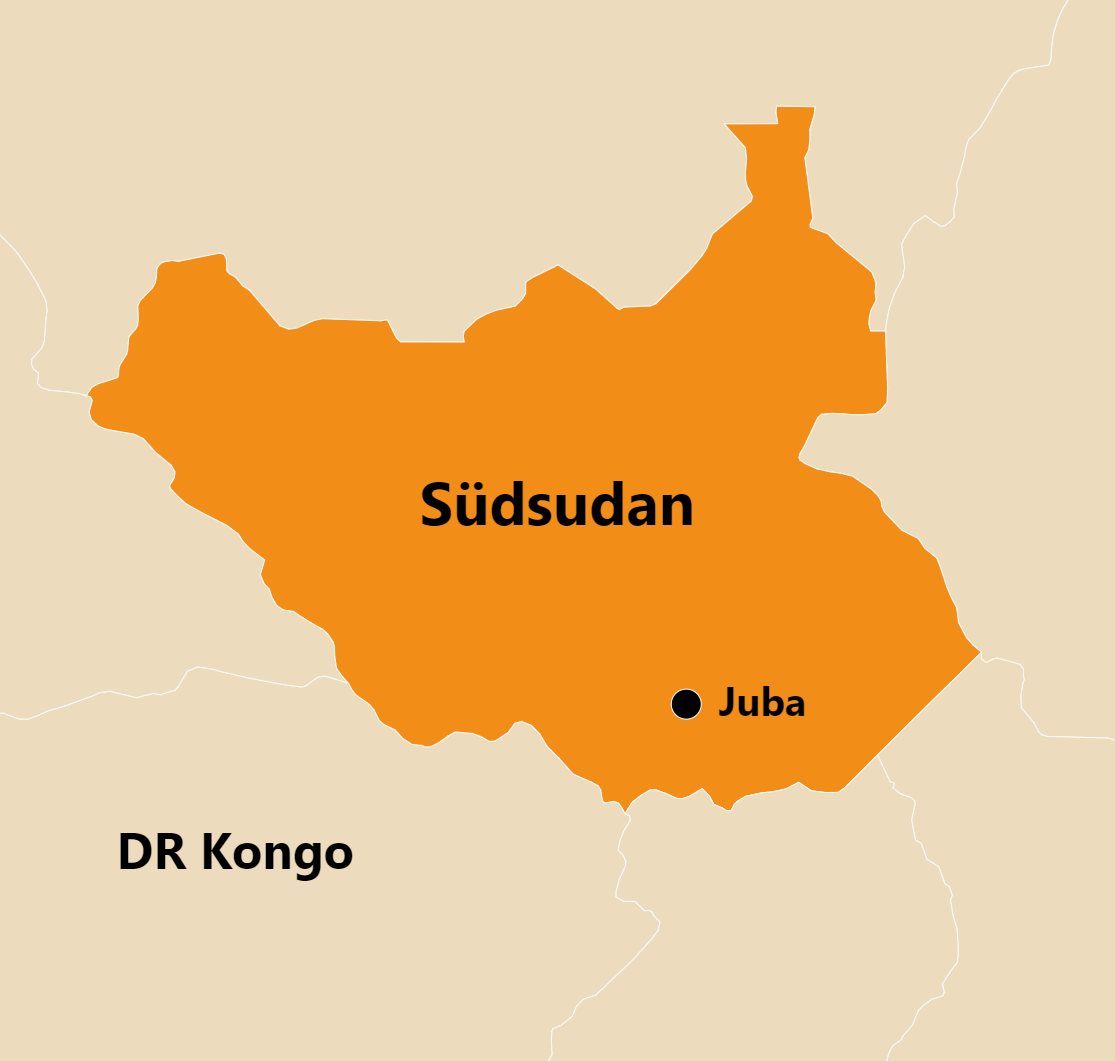
Guliba Florence Hakim
Coordinator South Sudan
► Email

Project Number: 179.1003
South Sudan achieved independence in 2011 after long fighting, but war broke out again in 2013. Initially mainly in the northeast of the country, but in July 2016 the conflict spread to the whole country. A peace agreement was reached in September 2018, but a unity government was not formed until 2020. Peacebuilding and reconciliation work are more important than ever. Churches play the most important role in bringing about reconciliation work in a divided society. Mission 21 supports the engagement of its partner church, the Presbyterian Church of South Sudan, as well as the South Sudan Federation of Churches. Project work promotes the building of non-violent and just relationships, interethnically and ecumenically. Trauma and reconciliation work helps people deal with what they have experienced without reacting with renewed violence or acts of revenge.
Since the politically charged conflict of 2013, there has been repeated violence against civilians. Millions of people have been displaced by military action. Conflicts are caused not only by political power struggles but also by the fight for resources. Even after signing a peace treaty, the South Sudanese government is weak, has hardly any financial resources and pursues other interests than taking care of social structures. Thus, the church is and remains an important peacemaker.
The Presbyterian Church (PCOSS) is the third largest church in the country and a partner church of Mission 21. It supports peace and reconciliation work. Children, young people and women in particular are strengthened. The population is getting younger and younger. Young people under the age of 24 make up 62 percent of the population. They are the future and hope of the country. At the same time, they are easily influenced and particularly affected by violence and its consequences. Experience has shown that women play an important role in peacebuilding. However, women have had little voice in South Sudan. Strengthening the role of women is an important concern of Mission 21 and the PCOSS.
PCOSS strengthens the capacities of the target population regarding peacebuilding and reconciliation work and provides psychosocial support.
In peacebuilding and reconciliation work, all ethnic groups are considered and included, and people from different social classes are addressed. A special focus is placed on women and young people.
In terms of methodology, the partner organization relies on the principle of "training of trainers": leaders are trained. In this way, knowledge is passed on and wider circles of the population are reached. In the trainings, non-violent conflict resolution and possibilities for reconciliation are discussed and tried out. Participants are encouraged to show reconciliation across ethnic boundaries, and stereotypes are weakened.
Peacebuilding is becoming an important component of all Mission 21 projects in South Sudan. Modules on peace and reconciliation work are offered at the Nile Theological College and the Giffen Institute for Theology.
The project coordinators undergo training to become "peace mobilizers". This means that they bring their knowledge of peace and reconciliation work into the project work.
Peace Missions" have been carried out since 2018. The church leadership makes solidarity visits especially in regions that are difficult to reach or in refugee camps. A high number of the population is still traumatized, especially women and children.
There continues to be significant demand for psychosocial support for children, women and men.
The work done so far is having an impact: pastors are incorporating their knowledge into church services and teachers are taking it into their school lessons. Peacebuilding is a particularly important topic in women's work.
The project described above is to be expanded due to the current situation in the current project phase. The aim of the project expansion is to reach even more people. Especially the South Sudanese in the diaspora are important actors and can work for peace. They live in other countries or also in camps for internally displaced people.
Peacebuilding training is a part of all projects supported by Mission 21 in South Sudan. One of the aims of the project expansion is to anchor the topics of peace and reconciliation as well as the processing of war experiences even more firmly in all projects.
Donations will initially flow into the basic project described above. If sufficient funding is available, additional activities are planned in the individual projects of the South Sudan Cooperation Program:

CHF 63'250
Mission 21
Protestant Mission Basel
PO Box 270
Missionsstrasse 21
4009 Basel, Switzerland
Tel.: +41 (0)61 260 21 20
info@mission-21.org
Donation account Switzerland:
IBAN: CH58 0900 0000 4072 6233 2
Tax exemption number:
CHE-105.706.527
Donation account Germany:
Savings Bank Lörrach-Rheinfelden
Swift BIC: SKLODE66
BLZ: 683 500 48
IBAN: DE39 6835 0048 0001 0323 33
Account No. : 1032333